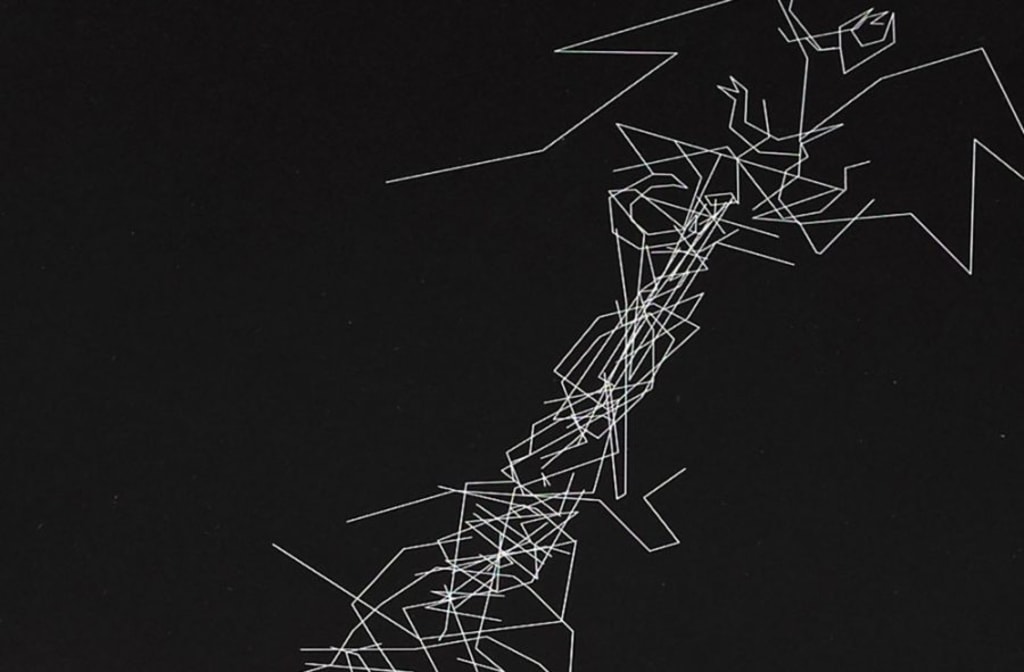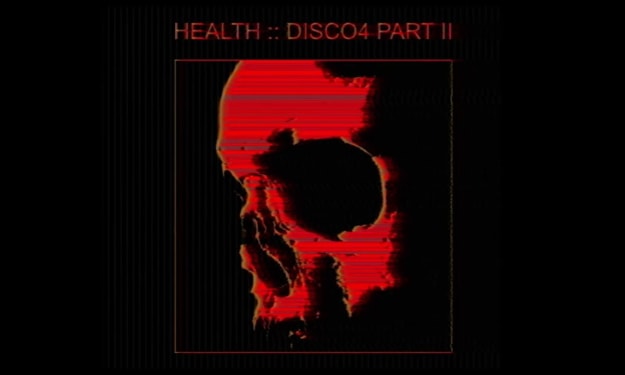Frenetic Nostalgic Angst in OPN's "Garden of Delete."
An Album Review by J.C. Embree

In my experience, many of my peers, all in the tail-end of the millennial generation, have a special appreciation for the shining synth and electronic basis of various film scores. The likes of films such as Drive and It Follows are often more renowned for their soundtracks and original scores more so than their direction and content.
One thing I often hear regarding the mass' enjoyment of such music, in both praise and critique, is that it invokes a sense of nostalgia, which is an emotional state of bittersweet harmony that the film in question is usually going for. Sweet because we feel such positive emotions and recall wonderful times, usually through other media; bitter still, because those times have passed.
But one example of a director-composer relationship that has gone swiftly against the 80s-trend crowd and become completely its own is the one between the Safe is brothers and composer Daniel Lopatin, otherwise known as Oneohtrix Point Never.
In 2017, like any other bored geek putting off his college homework, I saw the Safdies' Good Time. While I did not think it was best-of-the-year material nor was it anything revelatory, I did find it to be endlessly enjoyable. For those reading who are yet to see it, it depicts Robert Pattinson's character navigating a chaotic night, one where he keeps digging his grave of amorality deeper and deeper, where you don't want the night to actually end.
The Safdies and Oneohtrix Point Never would continue their collaborations with 2019's Uncut Gems one of the gems of Adam Sandler's filmography where the "comedian" actually shows what he's capable of.
These two releases have much in common between their urban New Yorker setting, the loud overlapping dialog, and the morally ambiguous protagonists. But another quality they share is a composer in OPN, who instead of trying to emulate the trends of Stranger Things or even Mandy, allies his music not with nostalgia but with the frantic urgency of the circumstances that pertain to the Safdies' characters.
I cannot directly recall what instigated my going from acknowledging Oneohtrix Point Never as their regular composer to thinking of him as the muted electronic voice of the preceding decade. But I know the thought grew on me this past year, when I developed a taste for instrumentals outside the usual soundtracks and hard-bop I usually enjoyed. I was already a fan of some of RJD2's work, and my love of films scores, electronic or otherwise, goes as far back as high school.
Somewhere in the preceding months though, I found that a separator between Oneohtrix and many of his contemporaries is a versatility that I was yet to recognize as possible within electronic music. Every album of his seems to have different ideas, even if it's not something you can immediately see.
And one of the most unique examples of those is within what may be considered his "heaviest" album, "Garden of Delete."
OPN is, for lack of a better word, famous in comparison to other ambient artists. As contributed by his Safdie film scores (which also have surprising popularity for indie films) as well his repeated critical acclaim, he enjoys a likely notorious celebrity not just within electronic music but popular music.
In this, his label put him on tour with Nine Inch Nails and Soundgarden when they needed a replacement for the experimental rap-group Death Grips. This, I'm convinced, is important to the composition of "Garden of Delete," for the tracks and energy of that album are generally believed to have direct inspirations traced from the two rock bands, and from radio rock in general.
That said, even if you'd followed OPN from the beginning, you're likely to experience culture shock from "Garden of Delete." It bears an almost adolescent aggression, unseen in his preceding works, while still staying true to OPN's own genre. But at not point does it feel as though Lopatin is mocking this time of someone's life, nor the music that an adolescent would listen to. Instead it pays tribute to it, pays it respect, and emulates it whilst still maintaining the noisy instrumental quality that the producer is known for.
Tracks like "Sticky Drama," "Child of Rage," and "Animals," (my personal favorite), while all instrumental, manage to maintain a frenetic speed but remain obvious in terms of how carefully they were composed. Not for a minute does a beat or a note feel irrelevant or unearned. The same can be said for the music video for "Animals," featuring Val Kilmer, coincidentally the first and favorite video made for OPN I witnessed back in 2018.
If you truly love music, I not only believe but insist that the music of Oneohtrix Point Never is worth indulging at least once. While there is not decent artist or album who appeals to literally everyone, I think the versatility of OPN's discography is something that ought to be attempted by any enthusiast. He along the likes of Nick Cave, Tom Waits, and a select handful or others helped expand the way I see music and truly appreciate it as an art form. And "Garden of Delete" may be one of the best gateway drugs to the world of ambient music for younger audiences I've experienced.
About the Creator
J.C. Traverse
Nah, I'm good.






Comments
There are no comments for this story
Be the first to respond and start the conversation.